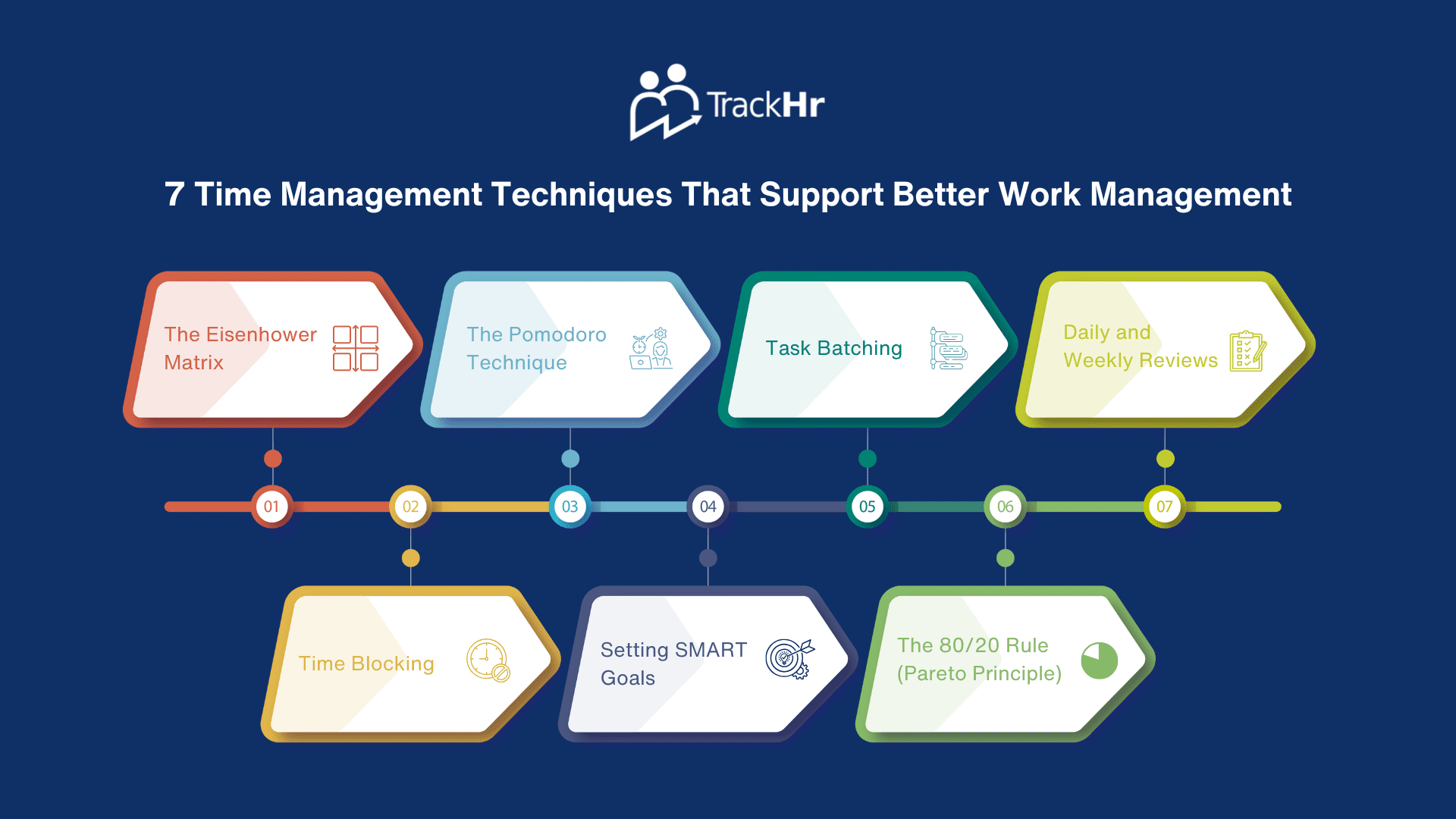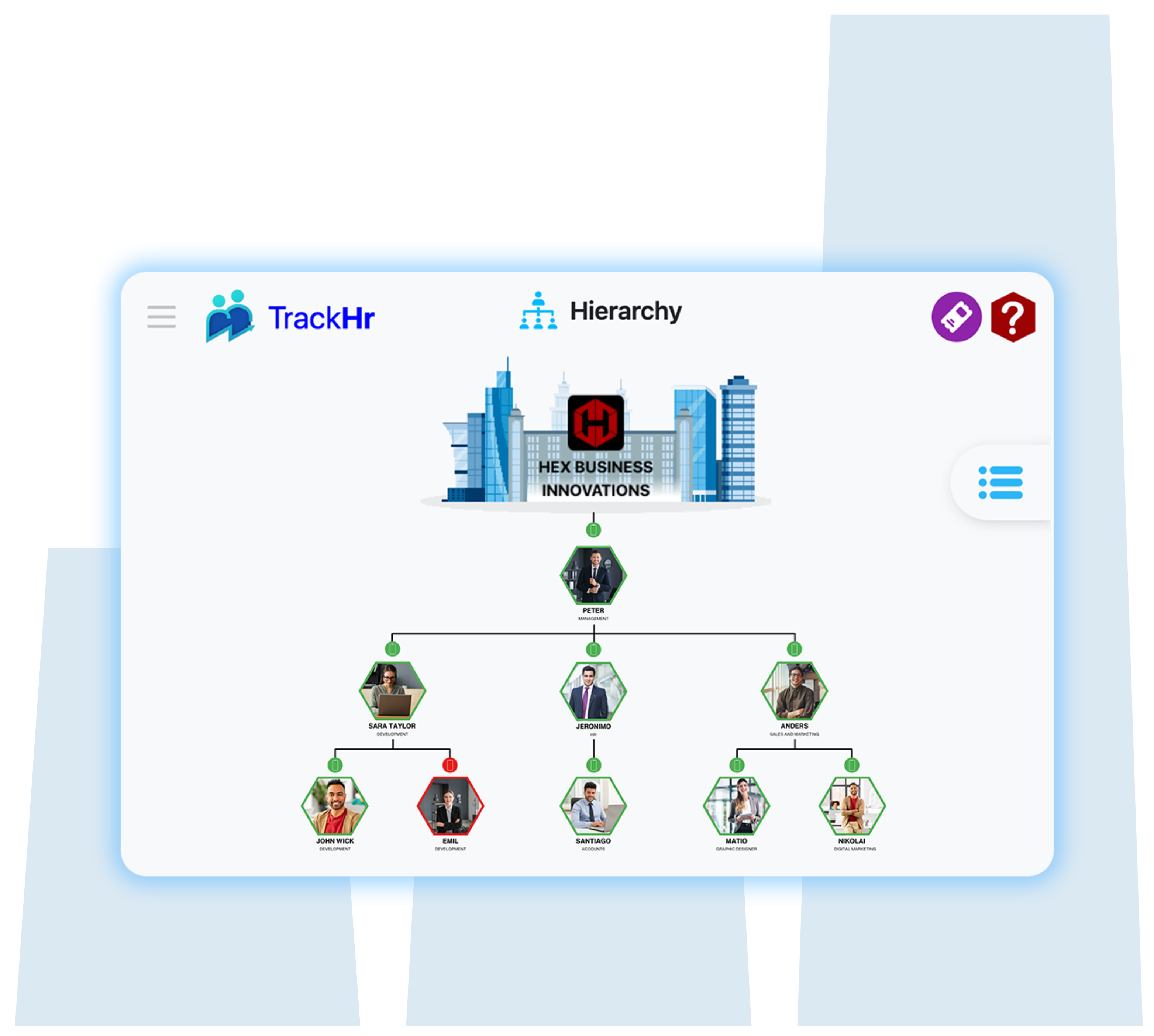Blog
7 Time Management Techniques That Support Better Work Management
- May 21, 2025
- 10:00 am

Effective time management is at the heart of successful work management. When individuals and teams know how to prioritize, organize, and execute tasks efficiently, productivity soars. In today’s fast-paced digital workplace, leveraging the right time management techniques can greatly enhance your ability to meet deadlines, reduce stress, and achieve business goals.
Here are 7 powerful techniques that can support better work management for you and your team.
1. The Eisenhower Matrix
The Eisenhower Matrix helps categorize tasks based on urgency and importance:
- Urgent and important: Do immediately
- Important but not urgent: Schedule for later
- Urgent but not important: Delegate
- Neither: Eliminate
This technique ensures teams focus on what truly matters, minimizing time spent on low-impact activities.
2. Time Blocking
Time blocking involves scheduling specific blocks of time for different tasks throughout the day. This reduces distractions and encourages deep work by:
- Allocating time slots to high-priority tasks
- Limiting multitasking
- Allowing for buffer periods and breaks
3. The Pomodoro Technique
This method uses 25-minute focused work sessions followed by 5-minute breaks. After four Pomodoros, take a longer break of 15–30 minutes. Benefits include:
- Increased focus and energy
- Reduced mental fatigue
- Better task completion rates
4. Setting SMART Goals
SMART goals are:
- Specific
- Measurable
- Achievable
- Relevant
- Time-bound
This framework helps clarify tasks and set realistic expectations, improving overall team alignment and accountability.
5. Task Batching
Task batching involves grouping similar tasks and doing them consecutively. For example, answering all emails in one sitting rather than intermittently throughout the day. This technique:
- Reduces context switching
- Increases efficiency
- Streamlines workflows
6. The 80/20 Rule (Pareto Principle)
The 80/20 rule suggests that 80% of results come from 20% of efforts. Identify and focus on the high-impact activities that deliver the most value. This approach helps prioritize time for the tasks that truly drive progress.
7. Daily and Weekly Reviews
Regularly reviewing your progress helps:
- Reflect on what’s working
- Adjust priorities
- Set up for a productive week ahead
Encourage teams to start their day with a quick planning session and end the week with a review of accomplishments and upcoming tasks.
Integrating These Techniques with Work Management Tools
Modern tools like TrackHr, Asana, or Trello support these techniques by offering features like:
- Calendar integration
- Task reminders
- Workflow automation
- Time tracking dashboards
By aligning time management techniques with digital platforms, teams can operate more cohesively and efficiently.
Conclusion
Mastering time management techniques is essential for improving work management. From simple strategies like task batching to structured methods like SMART goals and the Pomodoro Technique, these tools empower individuals and teams to work smarter, not harder.
Final Thought
The right time management habits, when combined with powerful work management systems, create a foundation for productivity, clarity, and long-term success.
Table of Contents
Exhausted from managing performance management manually?






